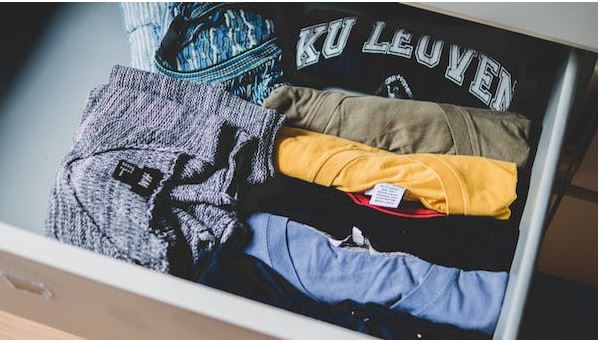
If you suffer from chronic health problems, your clothing choices can make a big difference in how you feel. Different fabrics and styles can help to ease pain, improve circulation, and reduce fatigue. Whether you’re looking for relief from joint pain, skin conditions, or headaches, there’s a type of clothing that can help. So read on to learn more about the best clothes for chronic health problems. Clothing choices can make a big difference in how you feel if you suffer from chronic health problems.
1. Neuropathy Socks
Socks designed specifically for people with diabetic nerve pain, and neuropathy socks feature extra cushioning in the toes and heels to minimize pressure on sensitive areas. They are made of breathable fabrics like cotton and bamboo that help keep feet cool and dry while providing support. Neuropathy socks also come in a variety of styles, including ones with special cushioned soles and arch supports to reduce foot fatigue. Additionally, socks used for neuropathy may also provide graduated compression which can help improve circulation. It’s important to note that people with diabetes should not wear compression socks above the ankle, as this may reduce blood flow to the foot.
2. Adaptive Clothing
Adaptive clothing is designed to make dressing easier for people with physical limitations, vision loss, or cognitive impairments. It often has features such as larger closures and openings, higher necks, and longer zippers. Adaptive clothing can also help those with chronic illnesses by providing more comfort and ease of movement. For example, adaptive pants may have an elastic waistband that makes it easier for someone with a chronic health condition to take them on and off without having to struggle with buttons or zippers. Additionally, because many adaptive clothes are made from breathable materials like cotton, they can help reduce the amount of sweat caused by physical activity.
3. Moisture-wicking Clothes
If you suffer from chronic sweating caused by medical conditions such as hyperhidrosis, moisture-wicking clothes can help keep your skin dry and comfortable. Moisture-wicking fabrics are designed to quickly pull sweat away from your body and disperse it on the outside layer of the fabric, where it can be evaporated. This kind of clothing is usually made with synthetic materials like polyester and spandex, so you can still stay cool even when temperatures start to rise. You don’t have to worry about feeling hot and sticky anymore; just make sure that you stick with breathable clothing!
4. Compression Garments
If you suffer from joint pain, arthritis, or chronic illnesses that affect your circulation, then compression garments might be just the thing for you. Compression garments are designed to help reduce inflammation and provide support to painful joints. They come in many forms such as socks, tights, sleeves, or wraps that can be worn all day to keep your joints secure while alleviating pressure on them. These garments are made with special fabrics that act like a second skin and provide gentle but firm support to the afflicted areas of your body. Many people who suffer from medical conditions find that these garments can help relieve their aches and pains significantly, making daily activities far easier.
5. Lightweight Clothing
Lightweight clothing can help with chronic health problems in many ways. Lightweight fabrics such as cotton, linen, and silk are not only breathable but also softer on the skin than heavier fabrics like wool or polyester. This makes them ideal for those suffering from sensitive skin conditions such as eczema or psoriasis. In addition to being lightweight, these fabrics are also more absorbent than their heavier counterparts which helps keep the body cool during hot weather. Lightweight fabrics may also be more comfortable for those who experience joint pain due to arthritis or other inflammatory conditions.
6. Thermal Clothing
Thermal clothing can be an effective way to help reduce chronic pain or discomfort caused by arthritis, fibromyalgia, and other medical conditions. This type of clothing helps keep your body temperature regulated and steady, which can reduce the intensity of certain symptoms. Thermal vests, shirts, and pants are all excellent options for people living with chronic illnesses. Additionally, thermal socks can help keep your feet warm and comfortable during cold weather. Be sure to invest in quality materials that are breathable and provide superior insulation. Doing so will ensure you feel as comfortable as possible throughout the day.
7. Natural Fibers
Clothing made from natural fibers, such as cotton, linen, and wool, can be helpful for people who suffer from chronic health problems. Natural fibers allow for increased airflow and breathability to help regulate body temperature. Additionally, the lack of synthetic dyes used to make these garments may reduce skin irritation and discomfort. Some natural fabrics are even antibacterial, which can help those with chronic illnesses by reducing their exposure to bacteria that could cause flare-ups or worsen their condition. Furthermore, natural fibers may absorb sweat better than synthetic materials so they can provide improved comfort in hot and humid climates.
8. UV Protective Clothing
If you suffer from any chronic health issues that cause your skin to be more sensitive or prone to sun damage, it’s important to consider wearing UV-protective clothing. This type of clothing is designed with a special fabric that blocks out the majority of ultraviolet rays and helps protect your skin from sunburn and other forms of damage. In addition, some types may even help reduce signs of aging like wrinkles and sagging due to UV exposure. Look for clothes labeled with UPF (Ultraviolet Protection Factor) ratings — the higher the rating, the better protection they provide against harmful UV rays.

Clothing is an important factor to consider when managing chronic health problems. Whether it’s compression garments for support, lightweight fabrics for sensitive skin, thermal clothing for temperature regulation, natural fibers for breathability, or UV-protective clothing for sun protection — the right clothes can make all the difference in helping alleviate symptoms and reducing discomfort. By investing in quality garments made from the right materials, you can ensure that your chronic health issues don’t limit your ability to live a full and comfortable life.






